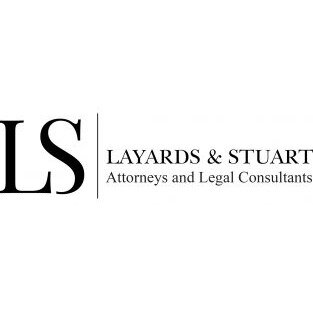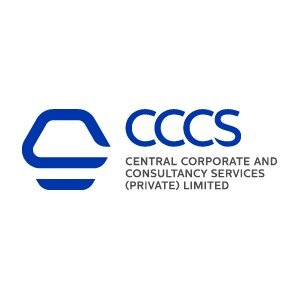Best Structured Finance Lawyers in Colombo
Share your needs with us, get contacted by law firms.
Free. Takes 2 min.
List of the best lawyers in Colombo, Sri Lanka
About Structured Finance Law in Colombo, Sri Lanka
Structured finance refers to complex financial instruments offered to borrowers with unique or complicated financial needs, beyond the scope of traditional lending. In Colombo, Sri Lanka’s financial and commercial hub, structured finance is increasingly utilized by corporations, banks, and government entities to support large projects, manage risk, and access new sources of capital. Legal professionals in this field help design, negotiate, and implement transactions such as securitizations, syndicated loans, and asset-backed securities, ensuring compliance with Sri Lankan law and international best practices.
Why You May Need a Lawyer
Structured finance transactions are complex, involving multiple parties, intricate legal documentation, and significant sums of money. Legal advice is essential in scenarios such as:
- Raising capital through securitization of assets or receivables
- Engaging in project or infrastructure financing, including public-private partnerships
- Participating in syndicated loans or credit facilities
- Issuing corporate bonds or asset-backed securities
- Restructuring existing debt portfolios
- Ensuring regulatory compliance and managing cross-border transactions
- Mitigating tax risks and optimizing tax structures
- Resolving disputes arising from complex financial agreements
A competent structured finance lawyer in Colombo can help safeguard your interests, identify potential risks, and guide you through required regulatory procedures or documentation.
Local Laws Overview
Sri Lanka’s legal framework for structured finance blends local statutes, regulatory guidelines, and international standards:
- Financial Institutions (Special Provisions) Act, No. 37 of 1974 - Governs banking and finance companies, affecting eligibility and regulatory requirements in structured finance deals.
- Sri Lanka Companies Act, No. 7 of 2007 - Outlines corporate governance, company incorporation, and capital-raising rules relevant to structured finance.
- Securities and Exchange Commission of Sri Lanka Act, No. 36 of 1987 - Regulates security offerings, disclosures, and investor protection.
- Central Bank of Sri Lanka (CBSL) Regulations - Provides oversight of financial transactions, particularly those involving foreign currency, external borrowings, or cross-border investments.
- Tax Laws and Exchange Control Regulations - Impact the structure and feasibility of many structured finance products, including withholding tax obligations and repatriation of funds.
It is crucial to note that regulations in Sri Lanka are subject to periodic change, and each structured finance transaction may trigger different legal and tax considerations.
Frequently Asked Questions
What is structured finance?
Structured finance involves non-traditional, often customized, financial instruments or transactions designed to address complex funding or risk-transfer needs of businesses, typically involving pooling of assets, securitization, or the use of various derivatives.
Who participates in structured finance transactions in Colombo?
Participants commonly include corporate borrowers, banks, finance companies, special purpose vehicles (SPVs), government agencies, investors, and legal or financial advisors.
Is it legal to securitize assets in Sri Lanka?
Yes, securitization of assets is permitted, provided it complies with relevant regulations under the Companies Act, CBSL guidelines, and the Securities and Exchange Commission regulations.
What regulatory approvals are needed for structured finance deals?
Approvals may be required from the Central Bank of Sri Lanka, Securities and Exchange Commission, Registrar of Companies, and sometimes the Ministry of Finance, depending on the transaction’s nature and parties involved.
Can Sri Lankan entities engage in cross-border structured finance?
Yes, but such transactions are subject to foreign exchange laws and may require CBSL approval, especially for external borrowings or investments.
What are common risks in structured finance transactions?
Risks include counterparty default, regulatory non-compliance, tax exposure, cross-border legal complications, and market or interest rate fluctuations.
How can a lawyer help mitigate risks in structured finance?
A lawyer can conduct due diligence, structure transactions to optimize legal and tax positions, draft and negotiate documentation, ensure regulatory compliance, and address dispute resolution.
Are there specific tax implications for structured finance deals?
Yes, deals may involve withholding taxes, stamp duties, and other tax obligations, depending on the structure and jurisdictions involved. Tailored tax advice is highly recommended.
What happens if there is a dispute in a structured finance deal?
Disputes are usually resolved through negotiation, arbitration, or litigation. Many contracts specify arbitration as the preferred method, either in Sri Lanka or an international venue.
How do I choose a structured finance lawyer in Colombo?
Look for lawyers or firms with expertise in banking, finance, securities law, and a track record of handling complex structured finance transactions. Recommendations, experience, and professional accreditation are important factors.
Additional Resources
If you need more information or assistance regarding structured finance in Colombo, these resources can be helpful:
- Central Bank of Sri Lanka (CBSL) - Regulatory information and guidelines for financial institutions
- Securities and Exchange Commission of Sri Lanka - Overseeing securities markets and investor protection
- Registrar of Companies, Department of the Registrar General - Company registration and compliance matters
- Sri Lanka Banks’ Association - Industry standards and best practices
- Law Society of Sri Lanka or Bar Association - Listings of accredited legal professionals
- Institute of Chartered Accountants of Sri Lanka - For tax and audit guidance
Next Steps
If you are considering or involved in a structured finance transaction in Colombo, it is important to:
- Assess your specific financial and legal needs.
- Gather all relevant documents and preliminary information about the transaction.
- Consult a qualified structured finance lawyer who is familiar with local and international regulatory requirements.
- Request a detailed review of your case and possible legal, tax, or regulatory outcomes.
- Work with your lawyer to prepare and negotiate the necessary agreements.
- Stay updated on regulatory developments that may impact your transaction.
Acting with proper legal guidance will safeguard your interests and ensure that your structured finance transaction proceeds smoothly and legally compliant in Colombo, Sri Lanka.
Lawzana helps you find the best lawyers and law firms in Colombo through a curated and pre-screened list of qualified legal professionals. Our platform offers rankings and detailed profiles of attorneys and law firms, allowing you to compare based on practice areas, including Structured Finance, experience, and client feedback.
Each profile includes a description of the firm's areas of practice, client reviews, team members and partners, year of establishment, spoken languages, office locations, contact information, social media presence, and any published articles or resources. Most firms on our platform speak English and are experienced in both local and international legal matters.
Get a quote from top-rated law firms in Colombo, Sri Lanka — quickly, securely, and without unnecessary hassle.
Disclaimer:
The information provided on this page is for general informational purposes only and does not constitute legal advice. While we strive to ensure the accuracy and relevance of the content, legal information may change over time, and interpretations of the law can vary. You should always consult with a qualified legal professional for advice specific to your situation.
We disclaim all liability for actions taken or not taken based on the content of this page. If you believe any information is incorrect or outdated, please contact us, and we will review and update it where appropriate.

















